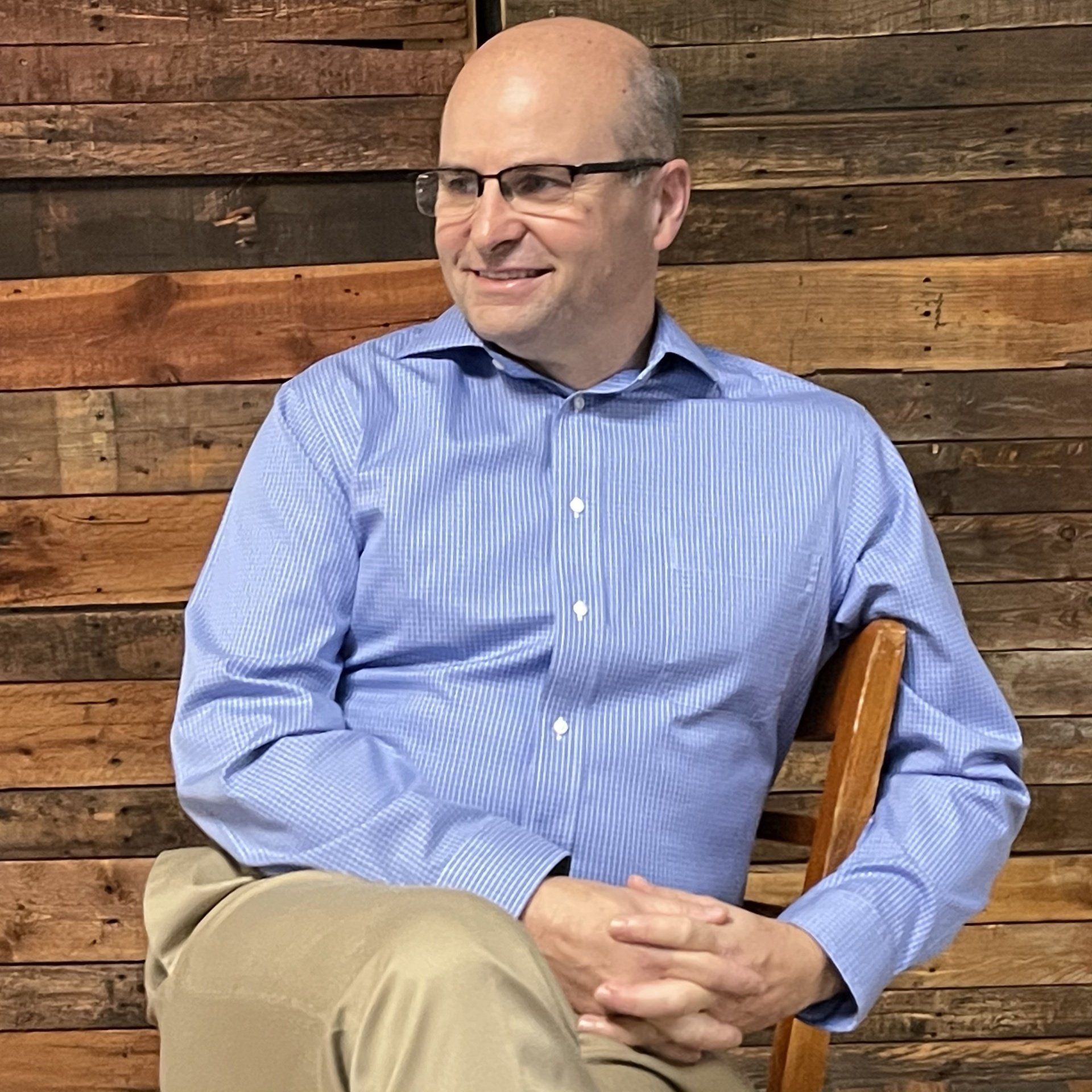Learn more about my book "The Courageous Ask"
The Effect of TMI on Leadership
I am naturally a news junkie. So much so that it starts to consume me. It’s on my radio, on my television, and on my phone. I still purchase a Sunday paper. For most of my adult life, the first activity of my day has been reading the morning paper.
I’m not sure I can perfectly answer why that is, but I do know that I always want to be on the cusp of anything that happens, especially politically. I attempt to be the most informed person in the room.
It seems like now there are more important things going on here and throughout the world than any other time in history. That makes it hard to not be heavily involved in the news.
Interpersonal relationships are my thing, and when you are well-informed, you can talk to almost anyone. My wife says I can make friends with a brick wall, and I attribute much of that to being well-informed.
I find that many leaders desire to be well-informed. They want to stay on top of their game.
(This blog focuses on starting a conversation centered on preventing the fall of nonprofit leaders. I write it from a Christian perspective, but all leaders will benefit. Be sure to sign up to receive these articles via email every Tuesday at
briankreeger.com as well as taking a look at previous blog articles. In addition to receiving these articles two days before they hit social media, you will receive the article "5 Early Indicators of a Christian Nonprofit Leadership Fall" along with the Contents, Introduction and the Appendix (My story) of my book,
The Courageous Ask: A Proactive Approach to Prevent the Fall of Christian Nonprofit Leaders.)
But I’ve come to realize that being well-informed by watching TV, listening to the radio, and reading news on my phone really hurts my outlook on the world. It hurts my outlook on people.
Information addiction makes me skeptical of people and organizations. I’m sometimes cynical. It even skews what I think about myself.
And a generally negative outlook on the world and people, skepticism, and cynicism don’t exactly help me as a leader. They tend to steal joy and motivation, which can spread throughout the organization.
The news attempts to share wonderful stories
about people doing great things. But let’s be honest; by and large, the news shares the worst of the human condition, and for some reason many of us are attracted to it. Human nature?
In today’s world, the negative news is seemingly constant. It never ends. Political, entertainment, sports, business, even nonprofit—there is always a scandal somewhere revealing the worst in human nature.
Evidence that humans prefer negative news to positive news is very well documented. For instance, a 2019 study by the Proceedings of the National Academy of Sciences of the USA (PNAS) of over 1,000 respondents across 17 countries and six continents reported, “Researchers note the great significance of these findings, which suggest that people all around the world react more strongly to negative news content. While journalists are responsible for producing more negative news, it could be that consumers are demanding it, consciously or not.”
And negative news affects the way we think about the world and those around us. Dr. Austin Perlmutter writes that “while negative news may influence our thinking through multiple mechanisms, one important consideration is how it interfaces with our cognitive biases, keeping our focus on everything that’s going wrong while blinding us to all the good things around us.”
There is a clear appeal to the negative side of human nature.
People do not get a fair shot at showing their goodness because I have built up a perception of humanity, and I apply it to every person I meet through judgments I make about them. Sometimes it is positive, but if I’m honest, many times it is not. Whether it is the way they look, the way they dress, or the way they talk, it is always a snap judgment based on inaccurate information, most times before they open their mouth.
Hey, maybe it's just me, but research says differently.
The ability to measure the influence the news or any other source of information has on our judgment is extremely important. This can definitely come into play as we navigate the relationships within a nonprofit, or any workplace for that matter.
When making important decisions or making difficult judgments, it is important that our minds are free from outside influences so we can make wise, well-informed decisions. This is difficult and sometimes on the edge of the subconscious, but it is something we must be careful of.
I did an exercise
that I credit to Tim Ferris and his book
The 4-Hour Workweek. I went on an information fast and turned off the news. Everything that would bring me current news and information was turned off for one week. He even encouraged backing down on nonfiction reading.
I was amazed at how my outlook changed, and how little of the missing information I actually needed. Hardly anything changed in the world around me.
It was like picking up a TV program you haven’t watched for a season only to find that you barely missed anything.
My thinking seemed clearer and less clouded. I looked at people differently. I looked at myself differently. The negative, judgmental thoughts subsided for the most part. I was much more productive. Yes, in just one week.
I now do information fasts regularly and for longer periods of time.
But one question always remains: does the problem lie in the media, or are they just revealing and yielding to human nature?
Another area that causes us to gain too much information, which many times is inaccurate, is gossip.
A 2020 story by journalist Lauren Kent revealed, “Social scientists have found that everyone is hardwired to pay attention to gossip, and to participate in it. In fact, it's an evolutionary adaptation—it's become human nature to spill the tea.”
Gossip is part of human nature. Desiring more and more information is human nature. For too many people, seeking negative information is human nature. And don’t even get me started on the misuse of the Internet!
There is a ton of information out there for us to manage and make sure it is accurate. It is our responsibility—another battle of human nature.
This is especially important when we are attempting to be a positive force in the support of leadership in a nonprofit setting, and when we, as leaders, desire to support those on our teams.
Be Courageous!
Be Proactive!
Be sure to sign up to receive these articles via email every Tuesday at
briankreeger.com. In addition to receiving these articles two days before they hit social media, you will receive the article "5 Early Indicators of a Christian Nonprofit Leadership Fall" along with the Contents, Introduction and the Appendix (My Story) of my book,
The Courageous Ask: A Proactive Approach to Prevent the Fall of Christian Nonprofit Leaders.
Stuart Soroka, Patrick Fournier, and Lilach Nir, “Cross-National Evidence of a Negativity Bias in Psychophysiological Reactions to News,” Proceedings of the National Academy of Sciences 116, no. 38 (September 3, 2019): 18888–92, https://doi.org/10.1073/pnas.1908369116.
Austin Perlmutter, “How Negative News Distorts Our Thinking,” The Modern Brain (blog), Psychology Today, September 19, 2019, https://www.psychologytoday.com/us/blog/the-modern-brain/201909/how-negative-news-distorts-our-thinking.
Lauren Kent, “The Science of Gossip (and Why Everyone Does It),” CNN Health, May 11, 2020,
https://www.cnn.com/2020/05/11/health/science-of-gossip-scn-wellness/index.html0(0%)
#LeadershipFall #LeadershipSurvival #NonprofitRelationships #ProactiveApproach #LeadershipStruggles #LeadershipBattles #ChristianExecutiveLeader #ChristianLeader #CourageousAsk #Proactive #ProactiveLeadership #NonprofitLeadership #ExecutiveLeadership #TMI #TooMuchInformation #InformationAddiction #Gossip #LeadershipInformation #TimFerris #FourHourWorkweek






